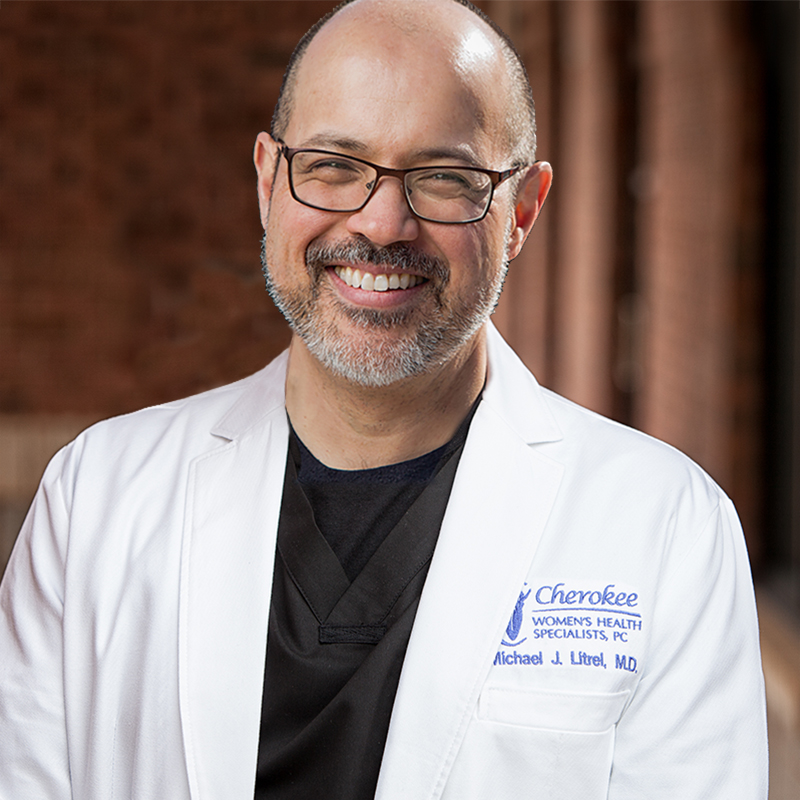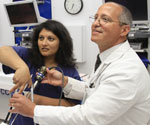By Michael Litrel, MD, FACOG, FPMRS Why Are We Afraid? It used to trouble me when a patient became nervous before surgery. Maybe she doesn’t think I will do a good job? Maybe I haven’t explained myself well enough? Maybe she doesn’t trust me? But after twenty years of being a surgeon, I now welcome a patient’s anxiety before she undergoes an operation. Fear can be good for your health. When my son Tyler was two years old, we took a family vacation to Jekyll Island, one of Georgia’s coastal isles that had been my wife Ann’s and my honeymoon spot a decade earlier. Tyler was thrilled at his first view of the ocean. The winter sun was warm as we slowly walked the sand to the water’s edge, and he grew more excited, pointing his chubby finger and saying “Water, water, water!!!” Tyler walked between Ann and me, and we each held one of his hands, swinging him high to prevent his feet from getting wet in the waves. But Tyler didn’t just want to get his feet wet. He fought to pull free of us, his intention clear: he wanted to walk into the ocean. At first, Ann and were laughing as we enjoyed Tyler’s insistence that he be allowed to walk freely. But a spectacular temper tantrum soon followed, and our morning family stroll was ruined. Tyler is now nineteen, finishing his first year of college, but in some ways things haven’t much changed. Three months ago, I taught him how to drive a manual transmission on my old 2004 silver Corvette; the car accelerates like a rocket ship. Tyler is a good driver. But when he asked to borrow the car to visit his buddies, my answer was an emphatic ‘no.’ There is no way I will put my son in a car that will go 160 MPH, so he can visit his teenage buddies. What good can come from that? I’d just as soon let a two-year-old walk into the ocean. Good Choices Can Cause Temporary Unhappiness The reason parenthood is difficult is because that inexperienced human being you love more than life itself will do stupid things and hurt himself, if given the opportunity. Not only that, but when you rightfully say ‘no,’ he will express his anger adamantly – no matter that your heart and mind are in the right place. The longer we are on this planet, the more we learn. If we look at the experiences we share as human beings, we see that each of us is born into this world as a helpless newborn, and a hundred years later – give or take – we die. In the process, we lose everything and everyone we love. The truth is actually brutal. Anyone paying attention has a right to be terrified. Surgery reminds us what we have to be afraid of. Every patient thinks about the same thing: “In a few moments I will be lying unconscious on a table while the surgeon cuts on my body! Who knows?!! I could die here today! ” Yesterday my patient gave me a big smile before her operation. But I saw right through her poker face: her eyes clearly telegraphed her fear. I smiled at her, shook her husband’s hand, and asked her and her husband if they had any questions or concerns. They did not. But it was obvious they did. We are all afraid of suffering. And although surgery always hurts, we know that when we wake up, there are narcotics and other drugs that will take care of the physical pain. Simply put, what we are really afraid of is not waking up. What We Care About I’ve had thousands of conversations with patients in the intense moments before an operation, and as I listen and try to comfort each patient before they go into the operating room, there is an additional truth my patients have shown me. We don’t want to say good-bye to the people we love. In the moments when we brush with death, what matters to us is not our money, our home, our job or possessions – it’s the people we know and experience life with. Admittedly, they may sometimes annoy us – but they make our lives worth living. Fear is good for our health because it serves as a spiritual reminder. God does not grant eternal biological life for any of us. As mortal beings, we lose all that is most important to us – our loved ones and our lives. So as experienced human beings who have suffered during our short time here, our spiritual lesson is fairly obvious – to love those around us more and more each day. This is the path of a healthy life. The more we love others, the more we understand the heart of God. This understanding brings us courage and comfort as we face the terrors of life. This courage is called faith. It is the understanding that true life is eternal. I held my patient’s hand and said a prayer of gratitude. Together we asked God to be with my patient and her husband so their hearts were at peace, and with me and the other doctors and nurses and staff, so once again we would be blessed to witness the miracle of healing grace. When I looked at my patient again, I noticed that now her eyes were smiling too. Already my prayer had been answered.











